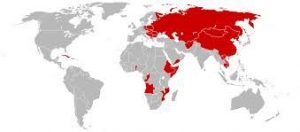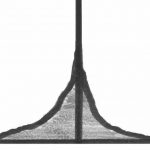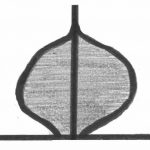ECONOMY 02 – PRIVATE PROPERTY & OWNERSHIP
God established the right to private property
- Thou shalt not steal = right to private property
- God-given right of all human beings
- God is Creator and therefore Owner of everything > God makes us owners
- Ownership is a good thing > God wants and save guards our ownership
Why? What does ‘Owning things’ teach us?
- To use things rightly … to take care of things
- to maintain things … to fix things at the right time
- to understand the true value of a thing
- to be faithful with things … to be responsible for things
- to train us in stewardship… to train us in basic leadership
Ownership = Selfishness?
- Defending my right to my things … is this not selfish?
- God commands generosity … but you cannot give unless you truly own
- God first saves our Right to own > which then gives us the ability to give
Men’s most original job description Genesis 1:28
“Fill the earth and take charge of it, have dominion over the fish … birds … every living thing…The Lord took the man and put him in the garden to till it and keep it”
- God is the Creator and ultimate Owner of everything.
- From creation God gave responsibility and care for the world to humans
- So we are stewards / care-takers before God and under God
- Authority is given > right & responsibility to work / use / innovate / develop / enjoy
- Authority is limited > no right to destroy, for we are not the true or only owners.
Levels of ownership? Kinds of ownership?
- my poem…my pen…my land…my goat…my son…my wife…my country…my God
- Different levels of ownership, of authority, of limits of authority, of responsibility
Ownership and development
Proverbs 27:23-27 … “Know well the condition of your flocks, and give attention to your herds … the lambs will provide your clothing, … goat’s milk for your food …”
- Value of labor … need for planning … slow growth … need for patience …self-control now will lead to increase later…re-investment…long-term thinking…development…providing for others also
- We all own at least some money, things… we own our time, our words, our labor, our strength, our ability to pray, …
- How do you spend it? How do you use it? Are you a good steward
- Matthew 25:14 The Parable of the talents: doesn’t matter how much you have, but: be faithful over little > you will be able to be faithful over much
- If you can’t take care of little things, how can God give you more?
- If you can’t take care of things, how can God give people into your care? How can he give you leadership?
- God requires accounting of his stewards, God requires increase … things in our hands need to increase in quantity, quality, development, usefulness, …
Wanting more and God’s way of getting more
Luke 12:48 … “For everyone to whom much has been given, much will be required”
- We want things but we don’t want responsibility. Don’t cry for too much!
- Leadership = authority = hard work = responsibility = accountability
- if you don’t want to work or serve, if you don’t want responsibility, don’t be a leader
- Illustration: Jackpot winners … within 15 years all had less than before!


- Proverbs 13:11 “Wealth hastily gotten will dwindle, but those who gather little by little will increase it.
- Proverbs 13:22 “The good leave an inheritance to their children’s children, but the sinner’s wealth is laid up for the righteous”
- God’s pattern: slow increase of goods by work… with it increase of character, wisdom, management, self-control … over generations of a family
- God will not bless quick-rich schemes. Do not believe in quick-rich schemes. Do not go for quick-rich schemes.
The Importance of boundaries
- There are limits to any authority given to us
- Bible strongly instructs boundaries of all kinds:
- Property Deu 19:14 ‘You must not move your neighbor’s boundary marker’
- Political Deu 2:5 ‘I won’t give you so much as a foot’s length of their land’
- Relational Deu 5:18 ‘Do not commit adultery’
- I need to know what I may and may not do … what is and isn’t under my care
- Boundaries tell me till where I am responsible, and where my authority ends

- Example: African farmers, farming only 50% land because no exact borders are known
- This is an economic nonsense!
- Boundaries are good and needed
- > I need to know what is mine and what isn’t
- > I need to know what is and is not my responsibility
- > Otherwise how can I know whether I am faithful?
- > I am not responsible for everything, but I am responsible for some things
- > I need to know what I can and cannot do
- > otherwise how will I know whether I am transgressing?
- We must know till where we have responsibility … and work hard to fulfill it > faithfulness
- We must know what is a transgression of boundaries … and not do it > not sin
When the Right to Private Property is denied
Communism
- Communism denies people the right to private property > collective property
- Examples of communist countries (at one time): Soviet Union, Cuba, Mozambique, China, Northern Korea, Vietnam, etc.

- ‘Everything belongs to everybody’ = ‘everything belongs to the government’ = ‘everything belongs to a few powerful people’
- ‘Classless society’ is a beautiful ideal, but in reality communist countries have strong hierarchies and great differences between ruling class and normal citizens
- Within 4 years of Lenin taking power and establishing the Soviet Union, the country descended into famine (1919-1923). Why?
- Policy of ‘Everything belongs to everybody’ = no difference whether I work or no > decrease of production > lack > poverty
- Policy of ‘Redistributing wealth by force’… but quickly there is nothing left to redistribute and no incentive to create new wealth


Socialism
- Policy of taxing the rich to give free services to the poor
- > rich are taxed as high as 70, 80, 90% of income
- > if I earn nothing more by hard work, effort, innovation > why should I work?
- > frustration of the hard working, skilled, able, enterprising and innovative people
Extended families
- Forever demanding money from the hard working members to finance the indulgent, irresponsible members of the family > no savings possible
On a bigger scale
- Worldwide: when the human right to private property is not granted > other human rights are also not granted
- Worldwide: wherever right to private property is safe guarded > development, high productivity, relative economic prosperity
- You can deny people the right to private property in a society, but you cannot do so without hurtful economic consequences!
Special ways of stealing
- ‘Financing’ = small payments after purchase > ending up giving as much as double the buying price
- Personal debt = stealing from your own future
- Consumer loan = God did not give me enough, therefore I will arrange for myself in other ways
- Family debt = stealing from your own children (no inheritance, inheriting debts)
- National debt = stealing from future generations
- Inflation = government stealing by printing more money > value of money falling > cheating those who saved
- Unequal trade agreements